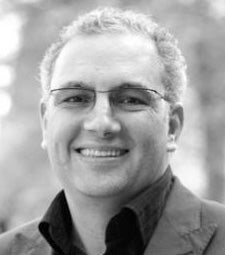
Ihab Elzeyadi
PhD University of Wisconsin-Milwaukee, 2001
MSc (Architecture) Pennsylvania State University, 1996
Professional Certificate in Project and Facility Management, American University in Cairo, 1990
Dipl. Eng. (Architectural Engineering) Ain Shams University, Cairo, 1990
BArch, Ain Shams University, Cairo, 1988
Registered Architect: Egypt
Registered Engineer: Egypt
Professor Ihab Elzeyadi's focus on architecture that provide high indoor environmental quality (IEQ) for its occupants directs his research into high performance building design, architecture for health and well-being, and design guidelines for indoor environmental quality (IEQ) and multi-comfort dynamic building design. He engages students in hands-on research and design explorations in design studios, seminars, and courses in environmental control systems and high performance building design. Elzeyadi is the founder and director of the UO High Performance Environments Laboratory (HiPE) and the Façade Integrated Technologies testing facility (FIT). Both are state-of-the-art award winning facilities that provide research and consulting services for the building industry, research institutions, private, and public entities.
Dr. Elzeyadi has been engaged in the design, construction, and research of high-performance buildings for more than 25 years. He has conducted post-occupancy evaluations and building performance assessments of more than 100 buildings, 55 of them are LEED™ and LBC rated. In addition, Dr. Elzeyadi has conducted grant-supported research on the relationship between people and buildings including impacts of the physical environment on health, productivity, and well-being as they relate to sustainable design strategies in commercial and educational environments. His studies produced evidence-based design guidelines and design-assistance services on various commercial projects with an emphasis on energy and resource effective design. He just completed a number of research projects investigating cost and financial benefits of green and LEED™ educational environments, livable communities’ physical infra-structure, and the Green Classroom Toolbox Project for energy retrofits of existing schools. Professor Elzeyadi recently received the I3 research award (Incubating Interdisciplinary Initiative) for his collaboration with Neuroscience to uncover the complex relationship between lighting type and quality on occupants’ brain functions and stress modulation. He is currently applying this research to the creation of evidence-based design guidelines for occupants’ multi-comfort in commercial buildings, including offices, schools, and hospitals health care settings.
Elzeyadi has advised student teams receiving firsts in the UIA International Student Competition, RIBA Energy Futures, INREB International Competitions, as well as the Luraline International Luminaire competition in recent years. He is the faculty advisor and sponsor for two out of top ten winning entries for the AIA COTE top 10 student design awards for 2014-2015. He has received research commendation awards and best paper awards from multiple organizations including Passive and Low Energy Architecture (PLEA), Ford Foundation, World Academy for Design and Health, the International Facility Management Association (IFMA), King Abdullah City of Science and Technology (KACST), and the Environmental Design Research Association (EDRA). He serves on the editorial board and scientific committees of various journals and conferences including Greenbuild, Design and Health Journal, and the Architectural Research Center Consortium.
Elzeyadi is a registered architect and engineer in Egypt where since 1988 he has maintained a private architectural practice specializing in building rehabilitation and adaptive re-use of historic structures. He was the designer and principal architect for winning entries in competitions for the Abu-Dhabi National Oil Company Administration Building (UAE) and for the rehabilitation and reuse of regional offices of the World Health Organization in Alexandria, Egypt. He is the past-president of the Society of Building Science Educators (SBSE), a past-member to the USGBC Research Advisory Committee, Past-Chair of USGBC, Thought and Leadership in Research working group, and an active member of the Illumination Engineering Society (IES), American Society of Heating Refrigeration and Air Conditioning Engineers (ASHRAE), American Solar Energy Society (ASES), Environmental Design Research Association (EDRA), and Oregon Built Environment and Sustainable Technologies (OR BEST).
Featured on USA Today Article Reviewing the Best Solar Companies
